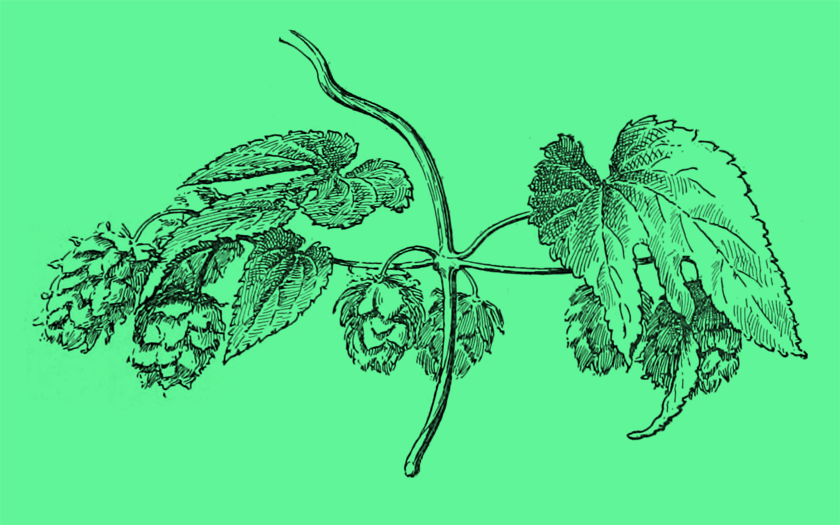Visit the Boak and Bailey's Beer Blog site
Here’s all the reading about beer and pubs that caught our eyes in the past week, from lower division football to natural wine.
First, there’s*Katie Mather on the connection between beer and lower-division football, for*Ferment, the promotional magazine for beer subscription service Beer52:
Standing in the drizzle of an unseasonably chilly Saturday, the fans of Altrincham FC aren’t fazed. They’ve got their scarves and their pride, but they’ve also got the best bar in any league. Well, according to Paul Rooney who runs it, anyway. He’s a lifelong Manchester United fan, but ten years ago he stopped making the pilgrimage to Old Trafford and started watching the Robins at Moss Lane instead… “It just got too expensive,” he says, opening our conversation with complete honesty. “To be honest, it’s not a great experience there anymore. I’m in my mid-thirties and so I might not have been old enough to drink back then, but I remember when you could stand and watch the game and have a beer. The atmosphere in the higher leagues is vanilla now. I’m not prepared to pay for it.”

We tend to leave wine be – we just don’t know enough about it and don’t have time to learn – but this piece by Rachel Monroe on ‘natural wine’ for the*New Yorker is crammed with parallels to, and sideways insight into, the world of beer:
In place of Parker’s muscular Bordeaux, the wines of the moment were often described as glou glou, French for “chuggable”: light reds frequently made via carbonic maceration, a fermentation technique that results in fresh, fruity wines. (It’s also quick; the wines are often ready to sell a few months after the grapes are harvested.) They sometimes tasted self-consciously unconventional. Millennials with appetites for difficult beverages—sour beers, bitter spirits, kombucha, apple-cider vinegar—appreciated wines that were cloudy and effervescent, with a noticeably fermented funk. Wine bars celebrated previously obscure styles and regions: pét-nat, skin-contact, Georgian, Slovenian.

For*Pellicle*Hugh Thomas has written about the Faversham Hop Festival which takes place in August every year:
Faversham is just south of the coast, between Maidstone and Canterbury in East Kent, the near-about birthplace of the East Kent Golding—a hop prized around the world for its aromas of lavender, thyme, and honey. It doesn’t matter if you’re the oldest brewery in the world or the youngest, the respect for this 230-year-old hop variety is often unmatched… You needn’t double-check the programme to know what they’re celebrating at the festival—hops are everywhere. The town is drenched in them. If they’re not working as a bittering or aroma agent in people’s pints, then they’re draped over shop fronts, or crawling through fences.

This one’s a few weeks old but we’ve only just come across it:*Richard Molloy is a publican and has written about the rules of becoming a regular. It contains helpful advice like this:
Real acceptance into the inner sanctum of the regular pub crowd takes time and patience. Here’s a quick guide:
1. Find a pub where most people sit around the bar.
2. Pick a barstool on the edge of where you perceive the regulars sit.
3. Take a newspaper – you don’t want to seem like you need them to entertain you. Do not take a book. Repeat. Do not take a book. This scares people and will set you back hours in your mission.
 SOURCE: Reading Libraries/The Whitley Pump.Here’s a blog post of a type for which we have a real soft spot: a detailed, footnoted history of a specific pub, namely The Four Horseshoes in Reading, AKA The Long Barn. Writing for The Whitley Pump*Evelyn Williams explains its origins, its place in a famous local libel case, its rebuilding, reinvention and eventual demolition:
SOURCE: Reading Libraries/The Whitley Pump.Here’s a blog post of a type for which we have a real soft spot: a detailed, footnoted history of a specific pub, namely The Four Horseshoes in Reading, AKA The Long Barn. Writing for The Whitley Pump*Evelyn Williams explains its origins, its place in a famous local libel case, its rebuilding, reinvention and eventual demolition:
On the front page of the Tory supporting Berkshire Chronicle on 24 September 1825 was a letter from James Leach of the Four Horseshoes addressed to ‘Brother Landlords’. He described how the renewal of his licence for the public house had been refused by magistrates at the annual licensing sessions… Leach wrote that around midsummer he had been given notice to quit by Mr Stephens and when he attended the magistrates sessions he was surprised to be told that his licence would not be renewed but was not given any reason. In particular he focused on the treatment he received from one of the magistrates, John Berkeley Monck one of the Whig MPs for Reading.
And finally, there’s this, via @irr_orbit:
For more reading, checkout Alan McLeod’s Thursday round-up.
News, nuggets and longreads 30 November 2019: football, wine, pub rules originally posted at Boak & Bailey's Beer Blog
More...
SOURCE: Reading Libraries/The Whitley Pump.Here’s a blog post of a type for which we have a real soft spot: a detailed, footnoted history of a specific pub, namely The Four Horseshoes in Reading, AKA The Long Barn. Writing for The Whitley Pump*Evelyn Williams explains its origins, its place in a famous local libel case, its rebuilding, reinvention and eventual demolition:







 Reply With Quote
Reply With Quote